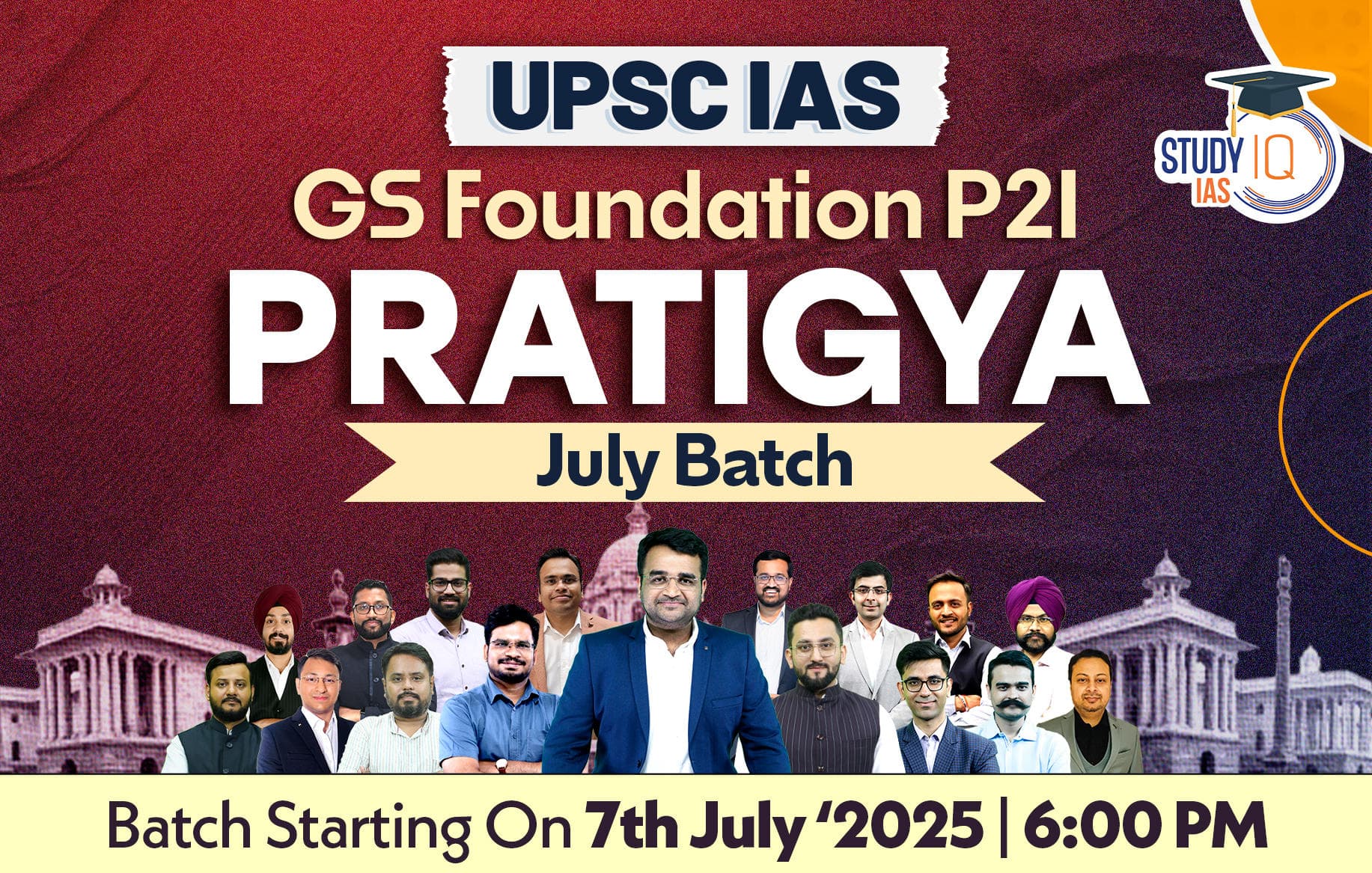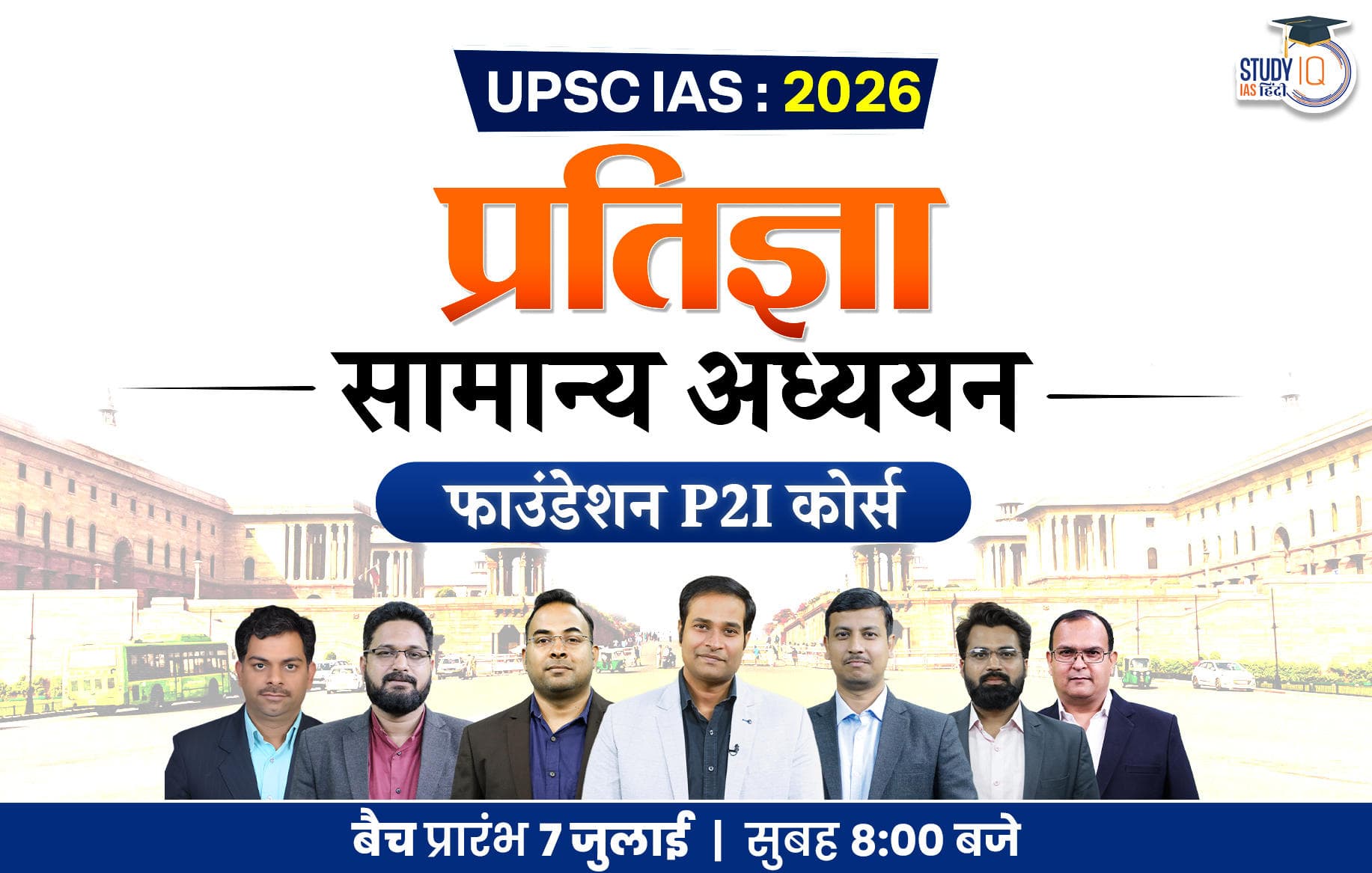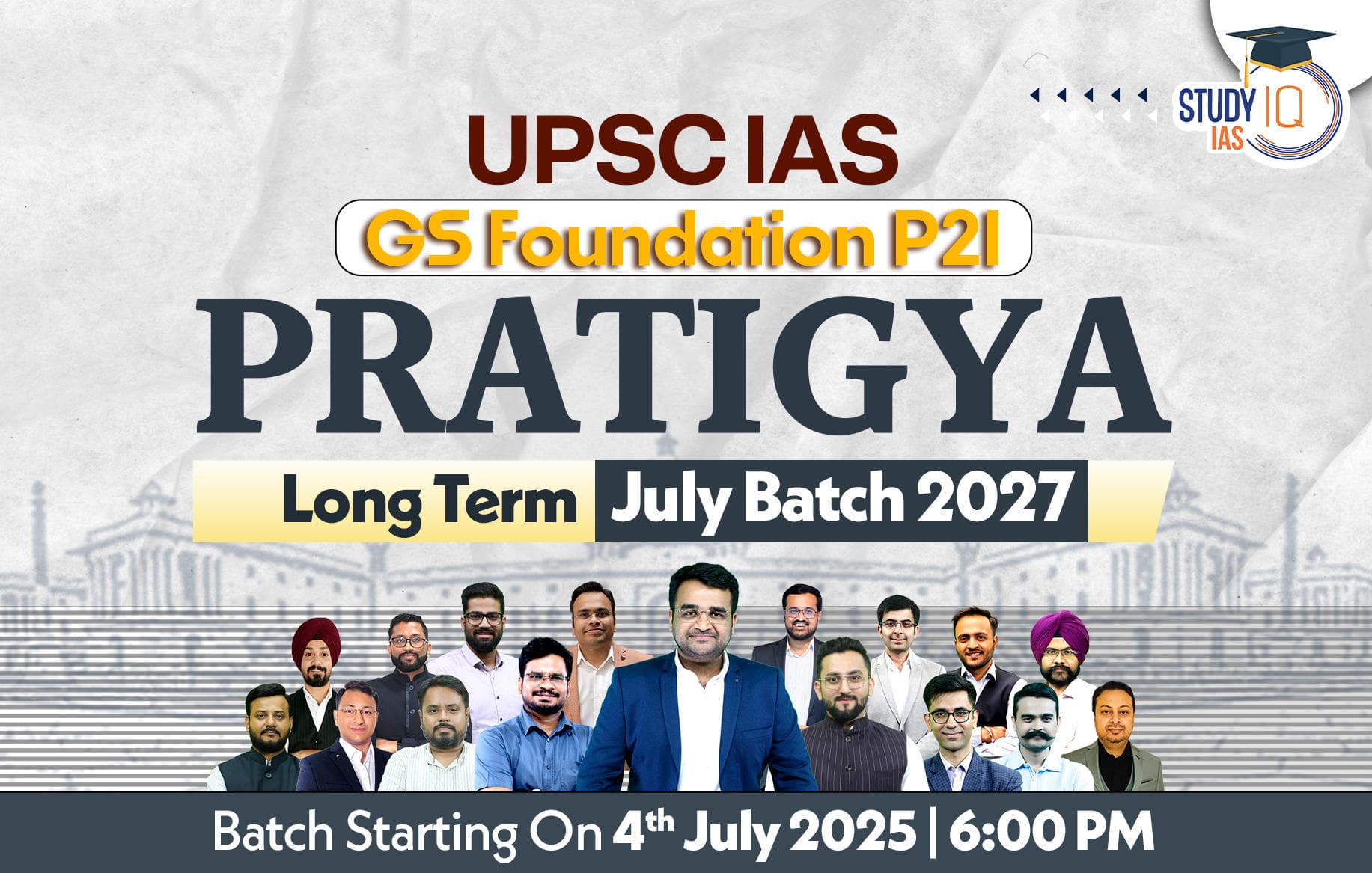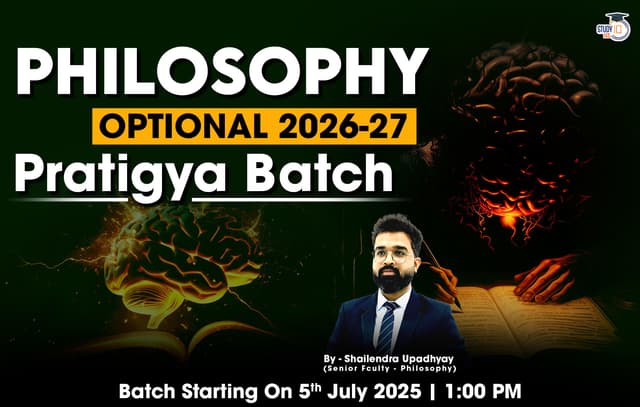Table of Contents
Union Public Service Commission has 48 optional subjects for the mains exam as an optional paper, of which Psychology is one paper. This subject’s syllabus assesses candidates’ ability to comprehend psychology as a science and utilize that understanding to tackle real-world issues faced by individuals. The syllabus covers both theoretical and practical aspects of psychology, aiming to evaluate candidates’ grasp of psychological principles and their application in diverse contexts.
UPSC Psychology Syllabus 2024
Psychology is one of the UPSC’s optional subjects for the civil services mains exam. The scientific study of the human mind and its functions, particularly those affecting behaviour in a given context, is defined as psychology. The perplexing aspect of psychology is that it is classified as a natural science, a social science, and a life science. This makes studying and writing answers for the UPSC a risky proposition. However, with focused study and the right guidance, this optional can be aced, as many past toppers have demonstrated. Check the complete UPSC Psychology Syllabus in this article for Paper 1 and Paper 2.
UPSC Psychology Optional Paper Pattern 2024
| Sr. No. | IAS Mains Papers | Subject | Marks |
| 1. | Paper VI | Psychology Optional Paper-1 | 250 |
| 2. | Paper VII | Psychology Optional Paper Paper-2 | 250 |
| TOTAL | 500 | ||
| Time Duration | 3 hours | ||
UPSC Psychology Syllabus For Optional Paper-1
Candidates can check out the Topic-wise UPSC Psychology Syllabus for Mains Optional paper I.
Foundations of Psychology
- Introduction: Definition of Psychology; Historical antecedents of Psychology and trends in the 21st century; Psychology and scientific methods; Psychology in relation to other social sciences and natural sciences; Application of Psychology to societal problems.
- Methods of Psychology: Types of research: Descriptive, evaluative, diagnostic and prognostic; Methods of Research: Survey, observation, case-study and experiments; Characteristics of experimental design and non-experimental designs; quasi-experimental designs; Focussed group discussions, brainstorming, grounded theory approach.
- Research methods: Major steps in psychological research (problem statement, hypothesis formulation, research design, sampling, tools of data collection, analysis and interpretation and report writing); Fundamental versus applied research; Methods of data collection (interview, observation, questionnaire and case study). Research Designs (Ex-post facto and experimental). Application of statistical techniques (t-test, two-way ANOVA, correlation and regression and factor analysis) item response theory.
- Development of Human Behaviour: Growth and development; Principles of development, Role of genetic and environmental factors in determining human behaviour; Influence of cultural factors in socialization; Life span development—Characteristics, development tasks, promoting psychological well-being across major stages of the life span.
- Sensation, Attention and Perception: Sensation: concepts of threshold, absolute and difference thresholds, signal-detection and vigilance; Factors influencing attention including set. and characteristics of stimulus; Definition and concept of perception, biological factors in perception; Perceptual organization-influence of past experiences, perceptual defence-factor influencing space and depth perception, size estimation and perceptual readiness; The plasticity of perception; Extrasensory perception; Culture and perception, Subliminal perception.
- Learning: Concepts and theories of learning (Behaviourists, Gestaltalists and Information processing models). The processes of extinction, discrimination and generalisation. Programmed learning, probability learning, self-instructional learning, concepts, types and schedules of reinforcement, escape, avoidance and punishment, modelling and social learning.
- Memory: Encoding and remembering; Short-term memory, Long-term memory, Sensory memory, Iconic memory, Echoic memory: The Multistore model, levels of processing; Organization and Mnemonic techniques to improve memory; Theories of forgetting: decay, interference and retrieval failure: Metamemory; Amnesia: Anterograde and retrograde.
- Thinking and Problem Solving: Piaget’s theory of cognitive development; Concept formation processes; Information processing, Reasoning and problem-solving, Facilitating and hindering factors in problem-solving, Methods of problem-solving: Creative thinking and fostering creativity; Factors influencing decision making and judgement; Recent trends.
- Motivation and Emotion: Psychological and physiological basis of motivation and emotion; Measurement of motivation and emotion; Effects of motivation and emotion on behaviour; Extrinsic and intrinsic motivation; Factors influencing intrinsic motivation; Emotional competence and the related issues.
- Intelligence and Aptitude: Concept of intelligence and aptitude, Nature and theories of intelligence, Thurstone, Guilford Vernon, Sternberg and J.P. Das; Emotional Intelligence, Social intelligence, measurement of intelligence and aptitudes, the concept of I Q deviation I Q, constancy of I Q; Measurement of multiple intelligence; Fluid intelligence and crystallized intelligence.
- Personality: Definition and concept of personality; Theories of personality (psychoanalytical, socio-cultural, interpersonal, developmental, humanistic, behaviouristic, trait and type approaches); Measurement of personality (projective tests, pencil-paper test); The Indian approach to personality; Training for personality development; Latest approaches like big 5-factor theory; The notion of self in different traditions.
- Attitudes, Values and Interests: Definitions of attitudes, values and interests; Components of attitudes; Formation and maintenance of attitudes. Measurement of attitudes, values and interests. Theories of attitude changes, strategies for fostering values. Formation of stereotypes and prejudices; Changing other’s behaviour, Theories of attribution; Recent trends.
- Language and Communication: Human language—Properties, structure and linguistic hierarchy, Language acquisition—predisposition, critical period hypothesis; Theories of Language development—Skinner and Chomsky; Process and types of communication—effective communication training.
- Issues and Perspectives in Modern Contemporary Psychology: Computer application in the psychological laboratory and psychological testing; Artificial intelligence; Psychocybernetics; Study of consciousness sleep-wake schedules; dreams, stimulus deprivation, meditation, hypnotic/drug induced states; Extrasensory perception; Intersensory perception; Simulation studies.
UPSC Psychology Syllabus For Optional Paper-2
Candidates can check out the Topic-wise UPSC Psychology Syllabus for Mains Optional paper II.
Psychology: Issues and applications
- Psychological Measurement of Individual Differences: The nature of individual differences. Characteristics and construction of standardized psychological tests. Types of psychological tests. Use, misuse and limitation of psychological tests. Ethical issues in the use of psychological tests.
- Psychological well-being and Mental Disorders: Concept of health-ill health positive health, well-being casual factors in Mental disorders (Anxiety disorders, mood disorders; schizophrenia and delusional disorders; personality disorders, substance abuse disorders). Factors influencing positive health, well-being; lifestyle and quality of life; Happiness disposition.
- Therapeutic Approaches: Psychodynamic therapies. Behaviour therapies. Client-centered therapy. Cognitive therapies. Indigenous therapies (Yoga, Meditation). Biofeedback therapy. Prevention and rehabilitation of the mentally ill; Fostering mental health.
- Work Psychology and Organisational Behaviour: Personnel selection and training. Use of Psychological tests in the industry. Training and human resource development. Theories of work motivation. Herzberg, Maslow, Adam Equity theory, Porter and Lawler, Vroom; Leadership and participatory management; Advertising and marketing; Stress and its management; Ergonomics; consumer psychology; Managerial effectiveness; Transformational leadership; Sensitivity training; Power and politics in organizations.
- Application of Psychology to the Educational Field: Psychological principles underlying effective teaching-learning process. Learning styles. Gifted, retarded, learning disabled and their training. Training for improving memory and academic achievement. Personality development and value education. Educational, vocational guidance and Career counselling. Use of Psychological tests in educational institutions; Effective strategies in guidance programmes.
- Community Psychology: Definition and concept of Community Psychology. Use of small groups in social action. Arousing Community consciousness and action for handling social problems. Group decision-making and leadership for social change. Effective strategies for social change.
- Rehabilitation Psychology: Primary, secondary and tertiary prevention programmes—the role of psychologists. Organising services for rehabilitation of physically, mentally and socially challenged persons including old persons. Rehabilitation of persons suffering from substance abuse, juvenile delinquency, and criminal behaviours. Rehabilitation of victims of violence. Rehabilitation of HIV/AIDS victims, the role of social agencies.
- Application of Psychology to disadvantaged groups: The concepts of disadvantaged, deprivation social, physical, cultural and economic consequences of disadvantaged and deprived groups. Educating and motivating the disadvantaged towards development; Relative and prolonged deprivation.
- Psychological problem of social integration: The concept of social integration. The problem of caste, class, religion and language conflicts and prejudice. Nature and manifestation of prejudice between the ingroup and outgroup. Casual factors of such conflicts and prejudices. Psychological strategies for handling conflicts and prejudices. Measures to achieve social integration.
- Application of Psychology in Information Technology and Mass Media: The present Scenario of Information Technology and the mass media boom and the Role of Psychologists. Selection and training of Psychology professionals to work in the field of IT and mass media. Distance learning through IT and mass media. Entrepreneurship through e-commerce. Multilevel marketing. Impact of TV and fostering value through IT and mass media. Psychological consequences of recent developments in Information Technology.
- Psychology and Economic Development: Achievement motivation and economic development. Characteristics of entrepreneurial behaviour. Motivating and Training people for entrepreneurship and economic development; Consumer rights and consumer awareness, Government policies for the promotion of entrepreneurship among youth including women entrepreneurs.
- Application of Psychology to environment and related fields: Environmental Psychology effects of noise, pollution and crowding. Population Psychology: Psychological consequence of population explosion and high population density. Motivating for small family norms. Impact of rapid scientific and technological growth on degradation of the environment.
- Application of psychology in other fields: a) Military Psychology: Devising psychological tests for defence personnel for use in selection, Training, and counselling; training psychologists to work, with defence personnel in promoting positive health; Human engineering in defence. b) Sports Psychology: Psychological interventions in improving the performance of athletes and sports. Persons participating in Individual and Team Games. c) Media influences pro and anti‐social behaviour. d) Psychology of Terrorism.
- Psychology of Gender: Issues of discrimination, Management of diversity; Glass ceiling effect, Self-fulfilling prophesy, Women and Indian society.

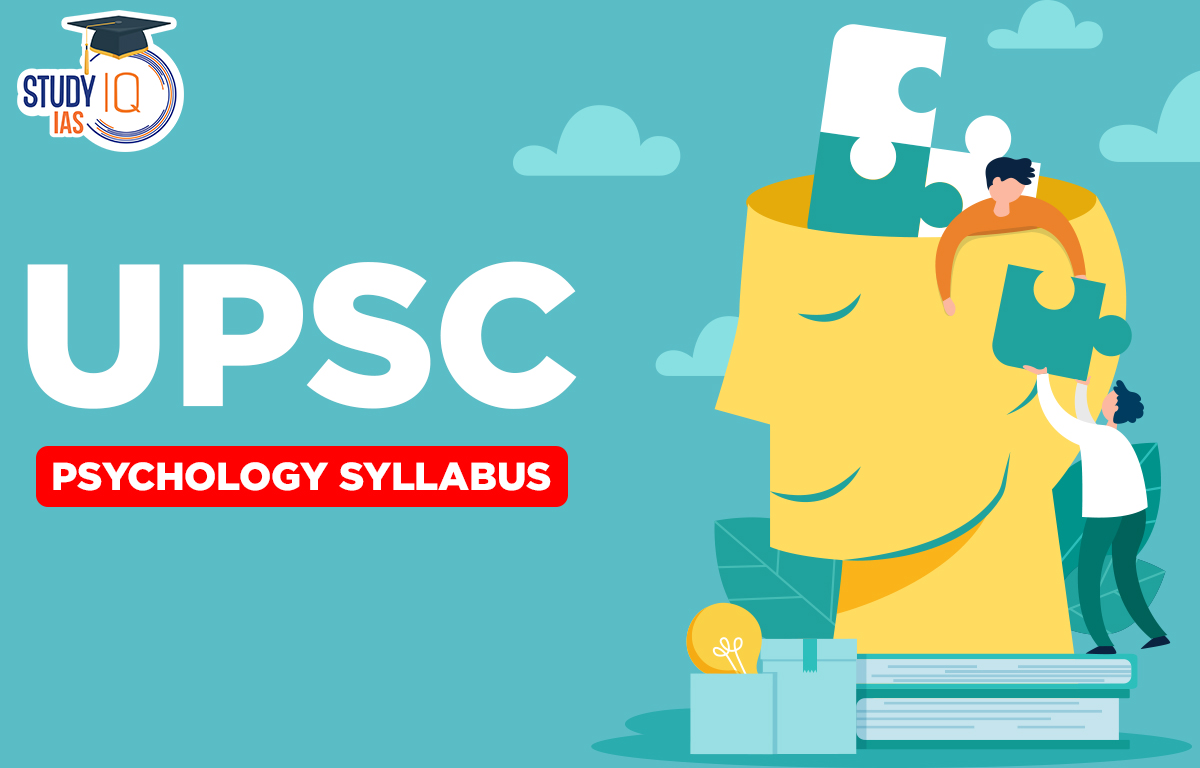
 NATO Countries List 2025, Members, Funct...
NATO Countries List 2025, Members, Funct...
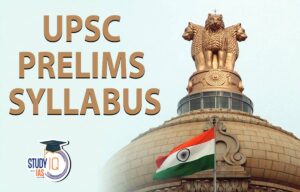 UPSC Prelims Syllabus 2025 PDF, Check Su...
UPSC Prelims Syllabus 2025 PDF, Check Su...
 UPSC Toppers 2024 Felicitation Program b...
UPSC Toppers 2024 Felicitation Program b...

